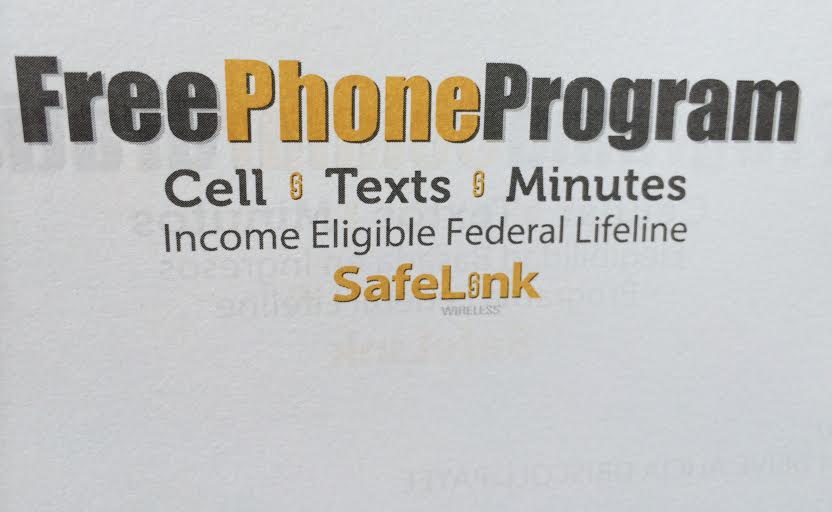 By Hannah Bleau | gargoyle@flagler.edu
By Hannah Bleau | gargoyle@flagler.edu
Government waste is one of the most boring subjects to discuss. People automatically shut their brain off. We can talk about how the government wastes tax dollars until we’re blue in the face, but it doesn’t seem to hit close to home for people. I’m guilty of this too. I’m outraged, but I’ve never experienced it in a personal way.
Until I read the letter.
“Dear Sir/Madame, We are contacting you because you may qualify for Lifeline program benefits and have the right to request a free cell phone with free monthly minutes from SafeLink Wireless.”
I laughed. Hard. It was addressed to my little sister, Gabrielle. She’s 16 years old and has cerebral palsy, which is a strictly physical condition. While her mental state is that of any other typical 16-year-old, she can’t walk, talk or feed herself. She needs constant help and care to live out a normal day. So you can imagine my surprise when I saw the government’s “gracious” offer.
The government wanted to give a free phone to a girl who can’t even talk.
“This program is supported by the Federal Lifeline Program,” the letter continued. “You won’t pay anything. There are no bills, no contracts, no credit checks and no fees.”
But doesn’t someone have to pay?
Look. I’m just as compassionate as the next guy. I’m not against a safety net for those who really need it, but our entitlement programs are out of control. The U.S. government is literally offering a phone plan to a teenager who can’t talk, much less even hold a phone.
Imagine how many of these letters go out. And imagine how many people actually think, “Gee, this is great.” I don’t even want to think about the abuse.
I think this sheds a light on a bigger problem. According to the U.S. Census Bureau, over 145 million Americans are “poor,” yet the American welfare system is bigger than ever. Major entitlement programs (like Social Security, Medicaid and Medicare) take up 45 percent of U.S. expenditures, and the number is growing. Other entitlement programs (such as food stamps and cash assistance), have grown nearly 50 percent since the turn of the century. It’s like the bigger the welfare programs get, the more poor and needy we have. Doesn’t that signify some kind of fundamental problem?
But back to the phones.
In 2012, the U.S. government spent $2.2 billion on these welfare phones. And here’s what’s really scary. The majority of Americans who filled out the form didn’t even prove their eligibility. Critics will argue that Obama didn’t create the program, and that’s true. But he did, let’s say, enhance it. In 2008, the government payouts for it skyrocketed, essentially doubling the size of the program.
It’s just laughable. If my mom filled out those papers, my disabled sister would be getting a shiny new taxpayer subsidized phone in the mail. She can’t walk. She can’t talk. But according to the letter, it’s her right. Life, liberty, the pursuit of happiness and a welfare phone – guess the founders forgot about that last one. But I found the last part of her letter the most unnerving.
“Tell your family and friends about this great opportunity.”
Tell your friends and family? I’m sorry. I didn’t realize this was a game show prize. In all honesty, how pathetic is it that the government actually encourages citizens to brag to their friends about their super awesome welfare benefits? If that’s not buying votes, I don’t know what is.
National debt is a problem that most politicians – whether Democrat or Republican – refuse to tackle. They go into office saying one thing, but realize they risk losing votes if they take welfare goodies away.
At some point, we have to say, “enough is enough,” and that doesn’t signify a lack of compassion.



Be the first to comment on "The reality of government waste phones home"